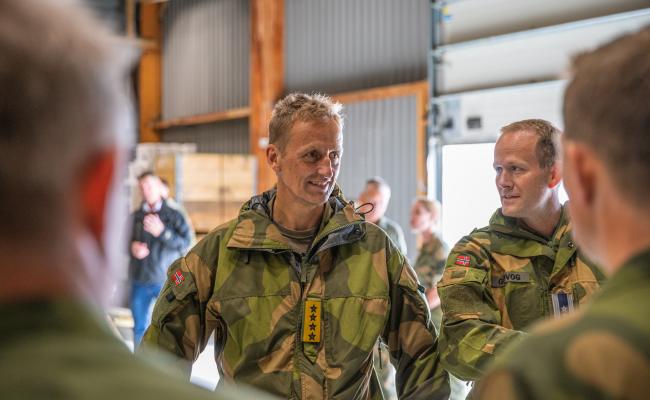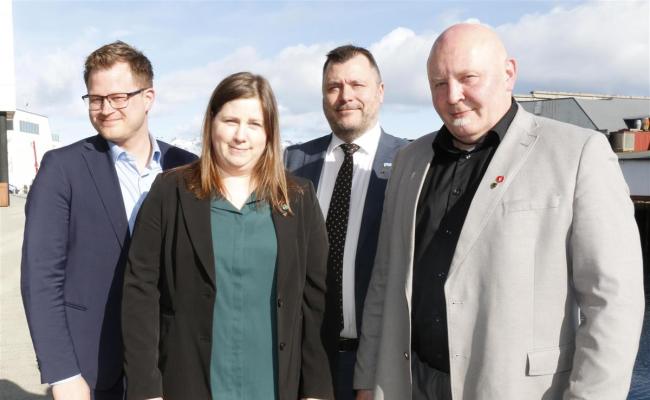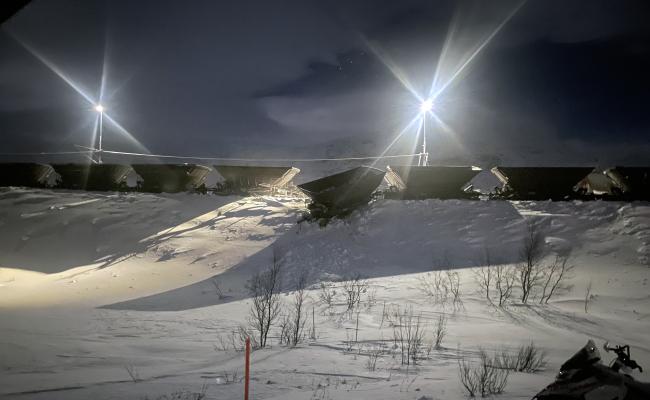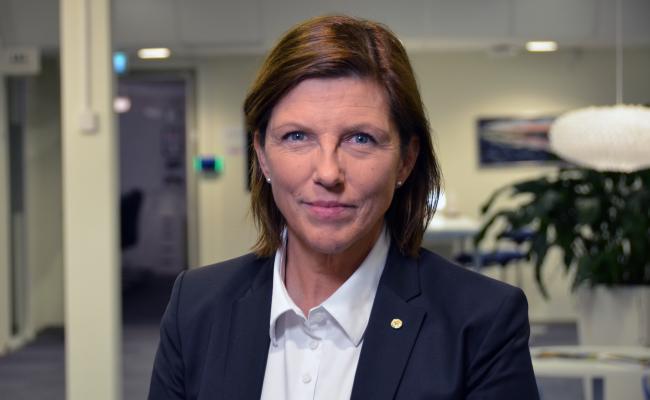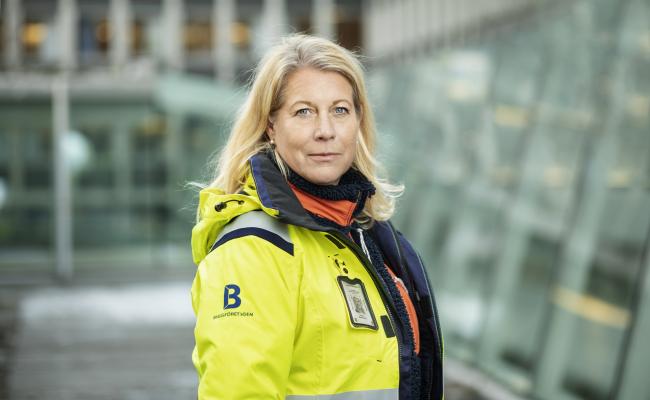Critical of the Swedish Government’s Lack of Investment in the Iron Ore Line
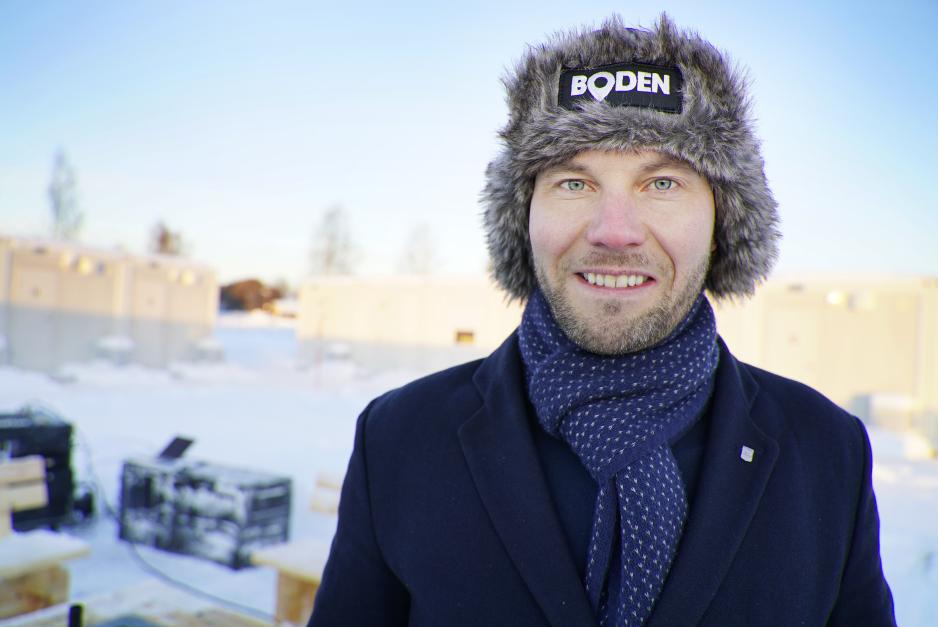
Mayor Claes Nordmark (S) of Boden municipality in Northern Sweden. Nordmark is also the leader of Norrbottens Municipalities, an association of 14 municipalities in Sweden's northernmost county.
The mayor of the Northern Swedish municipality Boden believes the Swedish Government is not taking the further construction of the Iron Ore Line seriously. Sweden recently presented several measures for improving the vital railway but is criticized for not doing enough.
Derailments, industrial growth in the North, and Swedish and Finnish NATO memberships have all contributed to increased attention toward the much-discussed Iron Ore Line, or the Ofoten Line, as it is named on the Norwegian side.
The heavily loaded railway line between Norway and Sweden is currently characterized by significant demand. Due to the expected growth on both sides of the border, it will exceed capacity in the years to come.
The Iron Ore Line
- Stretches from Narvik in Northern Norway to Luleå on the Northern Swedish coast.
- Essential for both passenger, freight, and iron ore transport.
- Single-tracked, which makes it particularly vulnerable to derailments.
- Characterized by low capacity and overload.
- There have been several major derailments on the railway in the past years, most recently in December 2023 and February 2024. Traffic stopped for two months.
- Many have called for the prioritization of a double track by the Norwegian and Swedish governments
Passing loops and interchange stations
Both Norway and Sweden recently presented several measures to increase capacity on the line.
In an interview with HNN, the Norwegian Minister of Transport, Jon-Ivar Nygård (Labor), emphasized that Norway and Sweden have identified the Ofoten Line a critical project to invest in, and three new passing loops are now part of the National Transport Plan.
Last week, the Swedish Government also decided to speed up development, expanding three interchange stations and the expansion of one railway area. Sweden's Minister of Infrastructure Andreas Carlson (Christian Democrats) says the government's infrastructure measures can contribute to increasing capacity between Gällivare and Boden in Northern Sweden by 30 percent and that these measures could be in place three to four years earlier than planned.
The mining company LKAB's iron ore train in Narvik. Business and industry actors and regional and local authorities have called for a double track as the most needed measure on the Ofoten and Iron Ore Line in the coming years. (Photo: Hilde Bye / High North News)
"Difficult to understand"
Yet, the mayor of the Northern Swedish municipality Boden, Claes Nordmark (S), is critical of what he argues is a lack of investment in the Iron Ore Line from the Swedish government.
"The Iron Ore and Ofoten Line is crucial for the growth in the whole of Sweden and Norway, and the railway line produces enormous value. However, it is difficult to understand that the Swedish Government does not take the upgrade and construction of the Iron Ore Line seriously," says the Boden mayor to High North News.
Nordmark is also the leader of Norrbottens Municipalities, an association of 14 municipalities in Sweden's northernmost county.
"It's as if the government does not want to invest in Northern Sweden for ideological reasons. Considering the Iron Ore Line's significance for our joint preparedness and defense ability, which should not be a party political issue, it is even more difficult to understand," he adds.
As HNN reported, the railway between Norway and Sweden has gained increased significance in light of Sweden and Finland's membership in NATO. The line is considered an essential corridor for transporting materials and allied reinforcements to support the Cap of the North in the event of a crisis or a war, among other things.
Also read (the article continues below)
Industrial challenges
Furthermore, Nordmark highlights the railway line's significance to the industry in the North. An extensive societal shift is occurring in several Northern Swedish cities due to significant investments in the green industry.
The Iron Ore Line is not least crucial for the Swedish state-owned mining company LKAB, which sends several iron ore trains by the line daily to the ports of Narvik and Luleå.
Recently, the mining company reported significantly lower annual results, partly due to the prolonged closure of the Iron Ore Line at the beginning of 2024.
LKAB's Communications President Niklas Johansson says to Radio Sweden that the government's new infrastructure measures were a step in the right direction but that Sweden is decades behind when it comes to the Iron Ore Line.
"This is important because it will require much more effort in the time coming to create the necessary conditions," he says.
"Today, we can't get full capacity if we produce all we can. We can't get the products to the ports in Narvik and Luleå. We also can't do too much simultaneously because traffic won't move. Everyone can see the enormous problems on the Iron Ore Line, and we must try to find ways to solve them going forward," he adds.
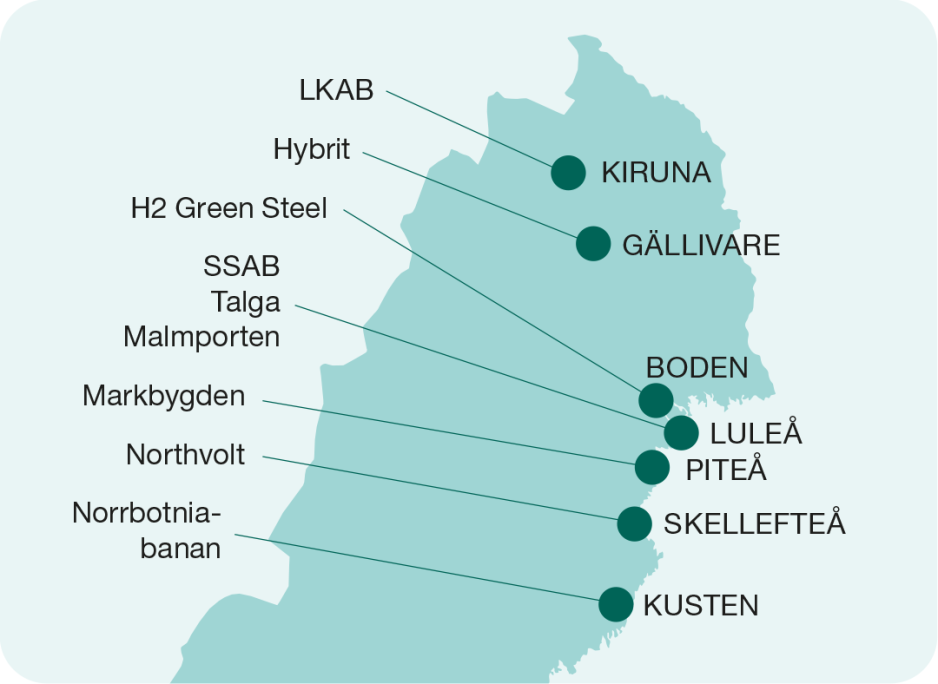
Many major industrial projects are already underway in Northern Sweden. H2 Green Steel (now Stegra) is investing heavily in Boden. Others, such as the battery company Northvolt, have faced significant challenges in their operations. (Photo: Vårt Luleå)
Uncertainty around important stretch
Another company requesting greater capacity is the steel company Stegra, formerly known as H2 Green Steel, which is building its first steel plant to produce fossil-free steel with the help of hydrogen in Boden municipality.
Public and Media Relations Manager Nils Eklund says to HNN that the Swedish Government's recent Iron Ore Line decisions are welcomed and in line with its previous message to accelerate measures.
"Regarding the planned measures for the Sävastklinten–Norra Sunderbyn stretch, we have been notified in our dialogue with the Swedish Transport Administration that they are working hard to clarify the government's questions about the stretch. We can only emphasize that it is also urgent to get a decision to start construction for this stretch," Eklund states.
The stretch is part of the railway corridor Boden-Luelå, which is considered part of the Iron Ore Line but actually belongs to the Main Line Through Upper Norrland.
Sweden's government is now pointing out that the cost basis for the interchange station and partial double track on the Sävastklinten-Norra Sunderbyen section has increased significantly since the previous national transport infrastructure plan was submitted for the period 2022-2033. Therefore, the government is instructing the Swedish Transport Administration to investigate possible cost-saving measures.
Urgent on the Boden-Luleå stretch
"For Stegra, it is important that further decisions are made to expand the capacity of the Iron Ore Line as a whole. This also applies to the Boden-Luleå route," Eklund adds.
The Swedish Transport Administration has secured funds to develop railway plans for double tracks between Boden and Luleå, but funding is still lacking for the actual construction.
Boden Mayor Nordmark also raises the issue of double tracks on the vital section between Boden and Luleå.
"The Iron Ore Line section between Boden and Luleå is Sweden's Suez Canal. This is a stretch on which there is very little space for goods and passenger traffic, and double tracks must be built here immediately, but the government is not touching this at all. It is a threat to both existing industry and the extensive new industrial investments," he emphasizes and concludes:
"Investing in the Iron Ore Line is not an aid project but a growth project because it is already the most profitable railway in all of Sweden. Therefore, large investments must be made to expand it already today."



